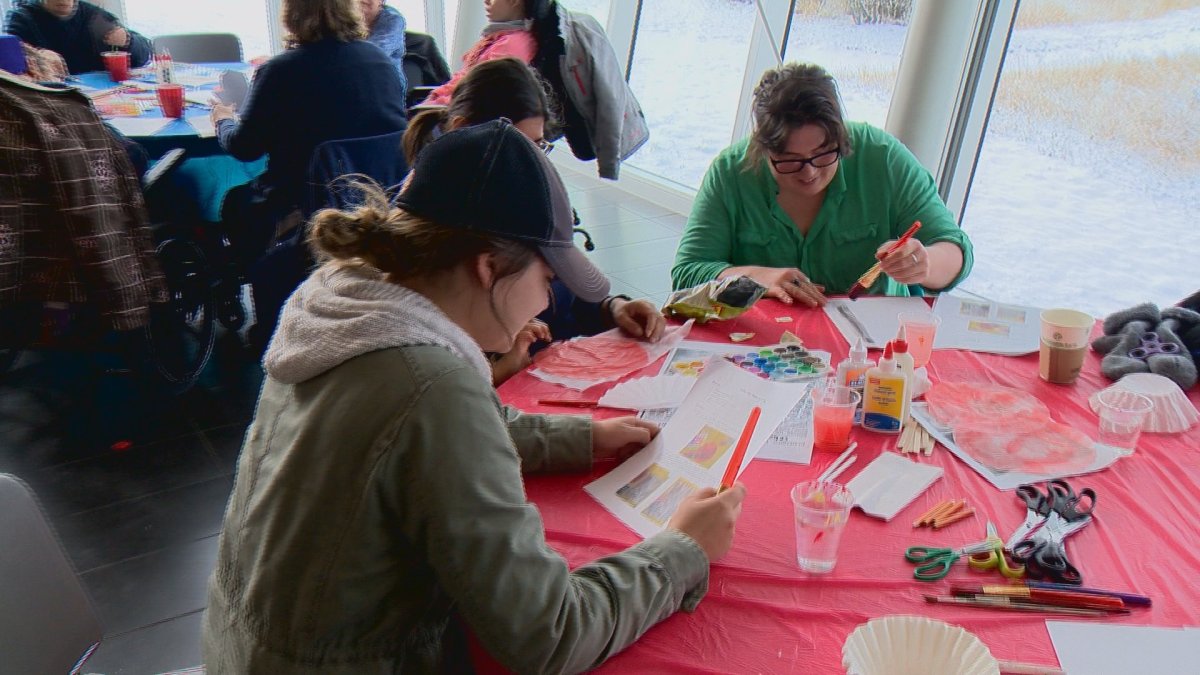Lethbridge’s Galt Museum commemorated Remembrance Day on Wednesday by creating art out of one of the most internationally recognized symbols seen throughout November: the poppy.

The Galt Museum hosted the art workshop to provide members of the public with a space to come together and learn the significance of the poppy while commemorating those that lost their lives to war.
“We run programs weekly that consist of a hands-on art project and history,” said Janae Redgrave, the museum’s community program co-ordinator.
“We did this project on poppy art because we thought it was a great opportunity to bring people together and do something hands-on as well as learn about the significance of the poppy and the importance of Remembrance Day.”
The event offered people opportunities to create their own pieces of art using coffee filters, paint and poppy seeds.

Get breaking National news
For one man who attended the workshop, the day also offered an opportunity to thank his own family.
“My dad was in the war,” Adam Wawrzyniak said. “He was in the Polish army just before Hitler attacked Poland and that’s one of the reasons why I’m here today.”
Wawrzyniak, who was creating his own poppy piece during the session, said the event provided him with a perfect way to say thank you to all those who served their countries in the past to create a brighter future.
“It’s time to remember, that’s the most important part, to remember the veterans that gave their lives so that we could do things like this,” he said.
“I’m doing a poppy because it’s just a reminder of all the sacrifice that happened during the first and second world wars.”
The poppy was first introduced in connection with Remembrance Day after a poem wrote by a Canadian doctor, Lt.-Col. John McCrae, was published. The poem was titled “In Flanders Fields” and was inspired by the sight of poppies growing from the war-torn earth in Belgium.








Comments